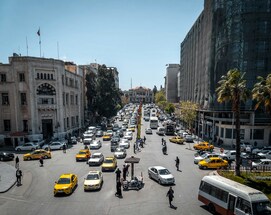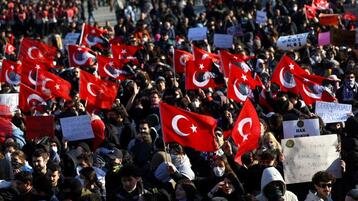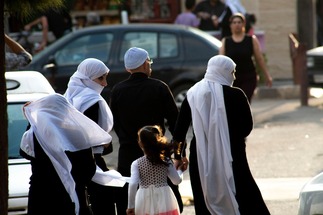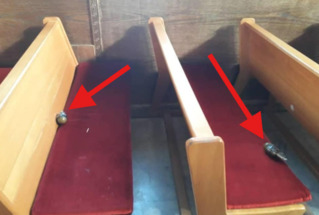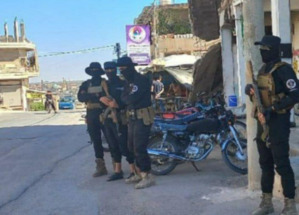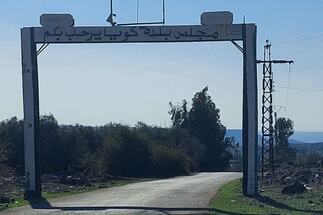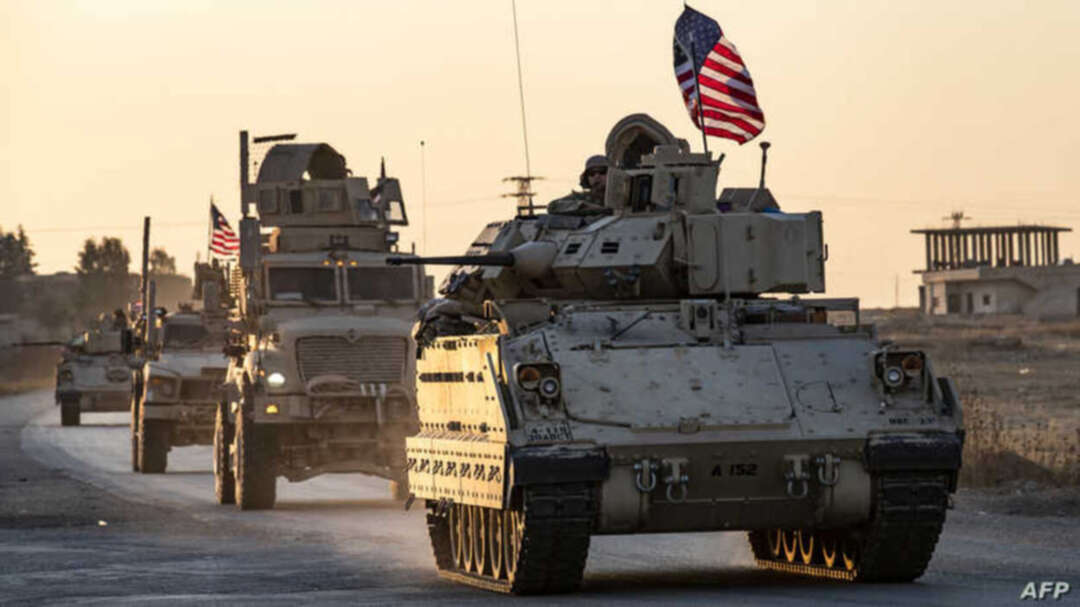-
Despite Tehran's Failed Attacks.. Iranian President Repeats Revenge Claims
-
Iranian President's statements reveal Tehran's attempt to maneuver diplomatically and militarily, pretending strength despite receiving painful blows, in an attempt to save face before both allies and
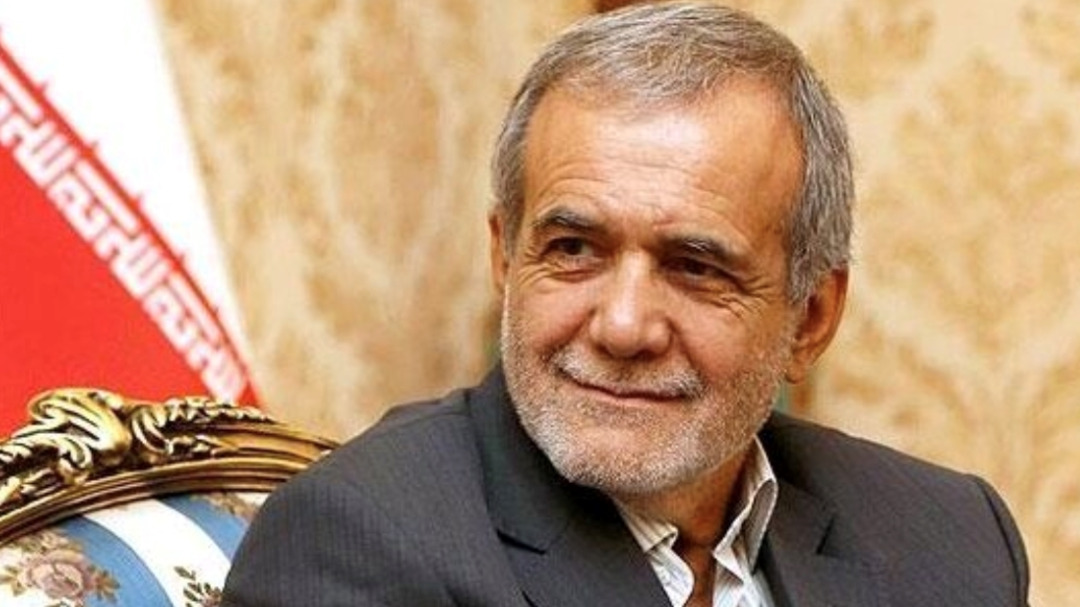
In a speech delivered from Qatar, Iranian President Masoud Pezeshkian claimed that his country does not seek war, repeating empty threats of a harsh response to Israel if the latter responds to the recent Iranian missile attack. Pezeshkian said: "We do not look for war but seek peace and calm," in stark contrast to his regime's actions and previous statements.
The Iranian President claimed that "Israel pushed us to respond after targeting our guest (Ismail Haniyeh) and escalating the situation in Lebanon and continuing the aggressions in Gaza," ignoring the reality of Haniyeh and Nasrallah's deaths, and attempting to justify Iran's failure to protect its allies. He added that if Israel responds, the Iranian response will be "stronger and more severe," in a clear attempt to cover up Tehran's weak position.
In another context, Pezeshkian claimed that his country was asked to "wait in responding to Haniyeh's assassination on my inauguration day in Tehran to give a chance for negotiations," in an attempt to justify the delay in response and its ineffectiveness. He also appealed to the United States and European countries to intervene to stop what he called "Israeli crimes," ignoring Iran's role in fueling regional conflicts.
In previous statements, Pezeshkian threatened that his country's response would be "doubly destructive" if Israel committed "another mistake," continuing the policy of verbal threats unsupported by tangible actions on the ground.
Tehran claimed its readiness to continue the confrontation, alleging that its response to any Israeli response would be "stronger," despite its failure to achieve any tangible results in its recent attack. Iran claimed it was content with striking 3 military bases and another for Israeli intelligence, in a clear attempt to inflate the size of its operations and hide their weak impact.
In an attempt to show strength, officials in the Iranian Revolutionary Guard revealed the deployment of hundreds of missiles on high alert near Iran's western borders, according to the New York Times. This announcement comes in the context of the Iranian propaganda campaign aimed at hiding the weakness of its strategic position and its inability to effectively respond to the successive blows it has recently received.
The Iranian Revolutionary Guard had claimed that its missile attack on Israel comes in response to the assassination of Hezbollah Secretary-General Hassan Nasrallah and Hamas leader Ismail Haniyeh, in an attempt to link its operations to previous events to justify its failure to protect its allies and its delay in responding.
These Iranian statements and claims reveal a state of confusion and weakness in Tehran's position, which is trying to balance maintaining its image as a regional power and avoiding escalation that could lead to a comprehensive confrontation in which it lacks the ability to withstand against its adversaries.
Levant-Agencies
You May Also Like
Popular Posts
Caricature
BENEFIT AGM approves 10%...
- March 27, 2025
BENEFIT, the Kingdom’s innovator and leading company in Fintech and electronic financial transactions service, held its Annual General Meeting (AGM) at the company’s headquarters in the Seef District.
During the meeting, shareholders approved all items listed on the agenda, including the ratification of the minutes of the previous AGM held on 26 March 2024. The session reviewed and approved the Board’s Annual Report on the company’s activities and financial performance for the fiscal year ended 31 December 2024, and the shareholders expressed their satisfaction with the company’s operational and financial results during the reporting period.
The meeting also reviewed the Independent External Auditor’s Report on the company’s consolidated financial statements for the year ended 31 December 2024. Subsequently, the shareholders approved the audited financial statements for the fiscal year. Based on the Board’s recommendation, the shareholders approved the distribution of a cash dividend equivalent to 10% of the paid-up share capital.
Furthermore, the shareholders endorsed the allocation of a total amount of BD 172,500 as remuneration to the members of the Board for the year ended 31 December 2024, subject to prior clearance by related authorities.
The extension of the current composition of the Board was approved, which includes ten members and one CBB observer, for a further six-month term, expiring in September 2025, pending no objection from the CBB.
The meeting reviewed and approved the Corporate Governance Report for 2024, which affirmed the company’s full compliance with the corporate governance directives issued by the CBB and other applicable regulatory frameworks. The AGM absolved the Board Members of liability for any of their actions during the year ending on 31st December 2024, in accordance with the Commercial Companies Law.
In alignment with regulatory requirements, the session approved the reappointment of Ernst & Young (EY) as the company’s External Auditors for the fiscal year 2025, covering both the parent company and its subsidiaries—Sinnad and Bahrain FinTech Bay. The Board was authorised to determine the external auditors’ professional fees, subject to approval from the CBB, and the meeting concluded with a discussion of any additional issues as per Article (207) of the Commercial Companies Law.
Speaking on the company’s performance, Mr. Mohamed Al Bastaki, Chairman BENEFIT , stated: “In terms of the financial results for 2024, I am pleased to say that the year gone by has also been proved to be a success in delivering tangible results. Growth rate for 2024 was 19 per cent. Revenue for the year was BD 17 M (US$ 45.3 Million) and net profit was 2 Million ($ 5.3 Million).
Mr. Al Bastaki also announced that the Board had formally adopted a new three-year strategic roadmap to commence in 2025. The strategy encompasses a phased international expansion, optimisation of internal operations, enhanced revenue diversification, long-term sustainability initiatives, and the advancement of innovation and digital transformation initiatives across all service lines.
“I extend my sincere appreciation to the CBB for its continued support of BENEFIT and its pivotal role in fostering a stable and progressive regulatory environment for the Kingdom’s banking and financial sector—an environment that has significantly reinforced Bahrain’s standing as a leading financial hub in the region,” said Mr. Al Bastaki. “I would also like to thank our partner banks and valued customers for their trust, and our shareholders for their ongoing encouragement. The achievements of 2024 set a strong precedent, and I am confident they will serve as a foundation for yet another successful and impactful year ahead.”
Chief Executive of BENEFIT; Mr. Abdulwahed AlJanahi commented, “The year 2024 represented another pivotal chapter in BENEFIT ’s evolution. We achieved substantial progress in advancing our digital strategy across multiple sectors, while reinforcing our long-term commitment to the development of Bahrain’s financial services and payments landscape. Throughout the year, we remained firmly aligned with our objective of delivering measurable value to our shareholders, strategic partners, and customers. At the same time, we continued to play an active role in enabling Bahrain’s digital economy by introducing innovative solutions and service enhancements that directly address market needs and future opportunities.”
Mr. AlJanahi affirmed that BENEFIT has successfully developed a robust and well-integrated payment network that connects individuals and businesses across Bahrain, accelerating the adoption of emerging technologies in the banking and financial services sector and reinforcing Bahrain’s position as a growing fintech hub, and added, “Our achievements of the past year reflect a long-term vision to establish a resilient electronic payment infrastructure that supports the Kingdom’s digital economy. Key developments in 2024 included the implementation of central authentication for open banking via BENEFIT Pay”
Mr. AlJanahi concluded by thanking the Board for its strategic direction, the company’s staff for their continued dedication, and the Central Bank of Bahrain, member banks, and shareholders for their valuable partnership and confidence in the company’s long-term vision.
opinion
Report
ads
Newsletter
Subscribe to our mailing list to get the new updates!

